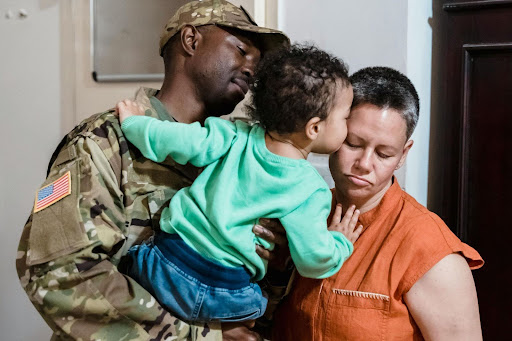
Mental health doesn’t always get the attention it deserves, especially among those who’ve served in the military. We understand how difficult it can be to acknowledge what you’re going through. But for many veterans, the effects of service don’t end when the uniform comes off. PTSD, depression, anxiety, and other mental health struggles often emerge or worsen after discharge. This is why it’s so important to understand the veteran’s mental health claim process.
Navigating the Veterans’ Mental Health Claim Process isn’t just about paperwork; it’s about validation. It’s about acknowledging the cost of service and making sure you receive the support and compensation you deserve. A successful claim can unlock access to therapy, medication, and monthly financial assistance. More importantly, it can be the beginning of real healing.
The first step in the claim process is realizing that what you’re experiencing might be connected to your military service. Maybe you’ve noticed persistent anxiety. Maybe you’re struggling to sleep, feeling isolated, or dealing with emotional highs and lows that just won’t go away. These symptoms aren’t signs of weakness, they’re signals that something deeper is happening.
If you believe your mental health condition began or was worsened during your service, it’s considered service-connected. This distinction is critical when filing a claim. To support your case, you’ll need medical documentation that connects your symptoms to your time in the military. We often help veterans at this exact stage, identifying symptoms and preparing for what comes next.
Once you’ve recognized the need for a claim, the next step is gathering your documentation. You’ll want to start with your military records, particularly your DD214, which outlines your discharge status and service history.
Next, collect all relevant medical records. This includes therapy records, past diagnoses, hospital visits, and medication history. If you’ve been working with a counselor or therapist, request documentation that details your symptoms and treatment progress.
Buddy statements, or lay evidence, are also helpful. These are letters written by friends, family, or fellow service members who can speak to your condition. They can describe what they’ve witnessed, changes in your behavior, mood, or daily functioning. This type of evidence may feel personal, but it can be incredibly powerful in supporting your claim.
Before submitting your claim, it’s essential to have a professional mental health evaluation. This is where we come in. We conduct thorough, veteran-focused psychological assessments that are fully compliant with VA requirements. These evaluations document your diagnosis, explain how your symptoms affect your life, and tie those symptoms back to your military service.
During the evaluation, one of our licensed professionals will meet with you, either in person or via telehealth, and walk you through a structured interview. We’ll ask about your experiences, symptoms, and history, but we’ll do so with compassion and respect. We know this isn’t easy. We’re here to make the process feel safe, supportive, and empowering.
When you’re ready to file, you can submit your VA mental health claim online through the VA’s website, by mail, or with the help of a VSO (Veteran Service Organization). Many veterans choose to work with a VSO because they offer free assistance and help avoid common errors.
You’ll need to complete VA Form 21-526EZ, the primary form for disability compensation. This form asks for information about your service, your current symptoms, and any medical documentation you’re submitting. Precision is key. The more clearly you explain the connection between your service and your condition, the stronger your case will be.
After your claim is submitted, the VA will likely schedule a C&P exam to verify your mental health condition. This is not a treatment appointment, it’s an evaluation by a VA provider to determine the severity of your condition and its service connection.
Preparing for the C&P exam is critical. We advise you to be honest, consistent, and clear about your symptoms. This is not the time to downplay what you’re going through. Many veterans worry about being dramatic or overstating their condition, but in reality, most underreport.
According to the VA, psychological C&P exams may be completed by:
“Close supervision” means that a licensed or board-certified psychiatrist or psychologist must review the assessment materials and consult directly with the examiner about the diagnosis and evaluation. The supervisor is responsible for oversight and must co-sign the final report, but does not meet with the veteran.
While these guidelines are in place, the reality is that not all examiners have the same level of experience or specialization in mental health. This can affect the quality and accuracy of the evaluation, especially when it comes to conditions like PTSD or other service-connected mental health issues.
That’s why having an independent Veteran Mental Health Evaluation can be critical. Our evaluations are conducted by credentialed professionals with deep experience in veteran mental health. We provide thorough, clinically sound documentation that helps ensure your symptoms are clearly understood and accurately represented, so you’re not overlooked, misdiagnosed, or denied the support you deserve.
Once your C&P exam is complete, the VA will review your file and assign a disability rating. This percentage, ranging from 0% to 100%, reflects the severity of your condition and directly impacts your monthly compensation.
Timelines vary, but most veterans receive a decision within several months. The VA considers the frequency, duration, and intensity of your symptoms, as well as how they interfere with work, relationships, and daily life.
A higher rating typically means greater financial support, access to additional healthcare services, and eligibility for programs like vocational rehabilitation. Your rating can also be adjusted over time if your condition worsens or improves.
Sometimes, the VA denies claims or assigns a rating that doesn’t fully reflect the impact of your condition. If this happens, don’t give up; you have options. Veterans can file a Supplemental Claim, request a Higher-Level Review, or appeal to the Board of Veterans’ Appeals.
A strong appeal often hinges on better evidence, and that’s where we can help. If you submitted your initial claim without a VMHA evaluation and were denied, our comprehensive assessments and clinical documentation can strengthen your appeal. If you were evaluated by VMHA and the VA requests clarification, we’re able to provide follow-up letters or additional context as needed. Appeals can take time, but with the right support and documentation, they often lead to a better outcome.
We guide veterans through each step of the claims process with professionalism and compassion. Our licensed mental health professionals have deep experience working with veterans, and we know what the VA is looking for when evaluating mental health conditions.
Our evaluations meet all VA standards and are crafted to highlight both the clinical and functional aspects of your condition. We offer telehealth services for convenience, so you don’t have to travel or wait weeks for an appointment. We also provide personal support along the way, whether you’re just starting out or need help with an appeal.
You’re never just a number with us. We’re here to make sure your voice is heard and your experiences are respected.
Filing a mental health claim isn’t just about receiving benefits, it’s about reclaiming your health, your dignity, and your future. The Veterans’ Mental Health Claim Process can feel overwhelming, which is why so many veterans wait until they’re at their breaking point. But you don’t have to suffer in silence. Help is available, and you deserve it.
The sooner you act, the sooner you can access real support, counseling, medical care, financial assistance, and a renewed sense of control. Even one successful claim can change the trajectory of your life, providing relief not just for you but for your family as well.
We’re proud to stand beside the veterans who have stood for all of us. If you’re ready to begin your mental health claim or need a trusted evaluation to support it, reach out today. Let’s take the next step together, with clarity, care, and confidence.

